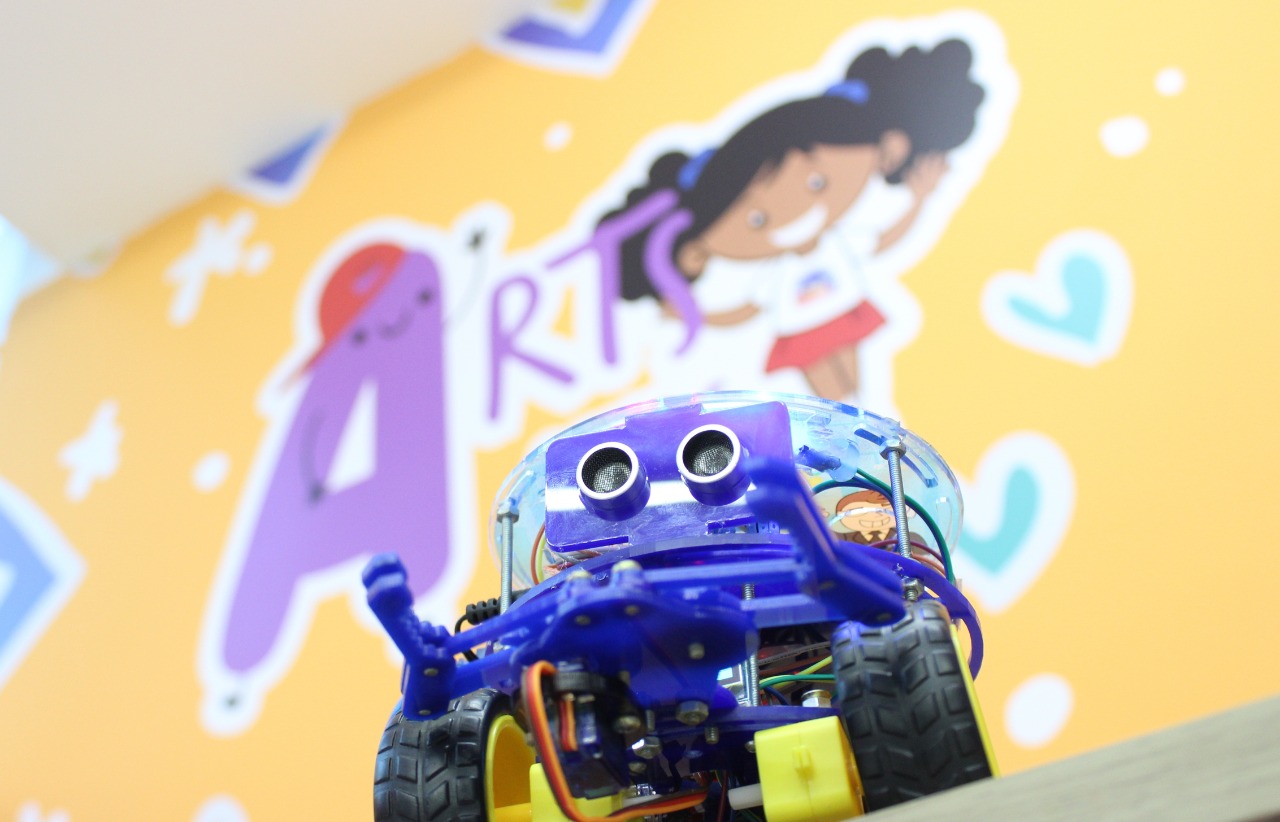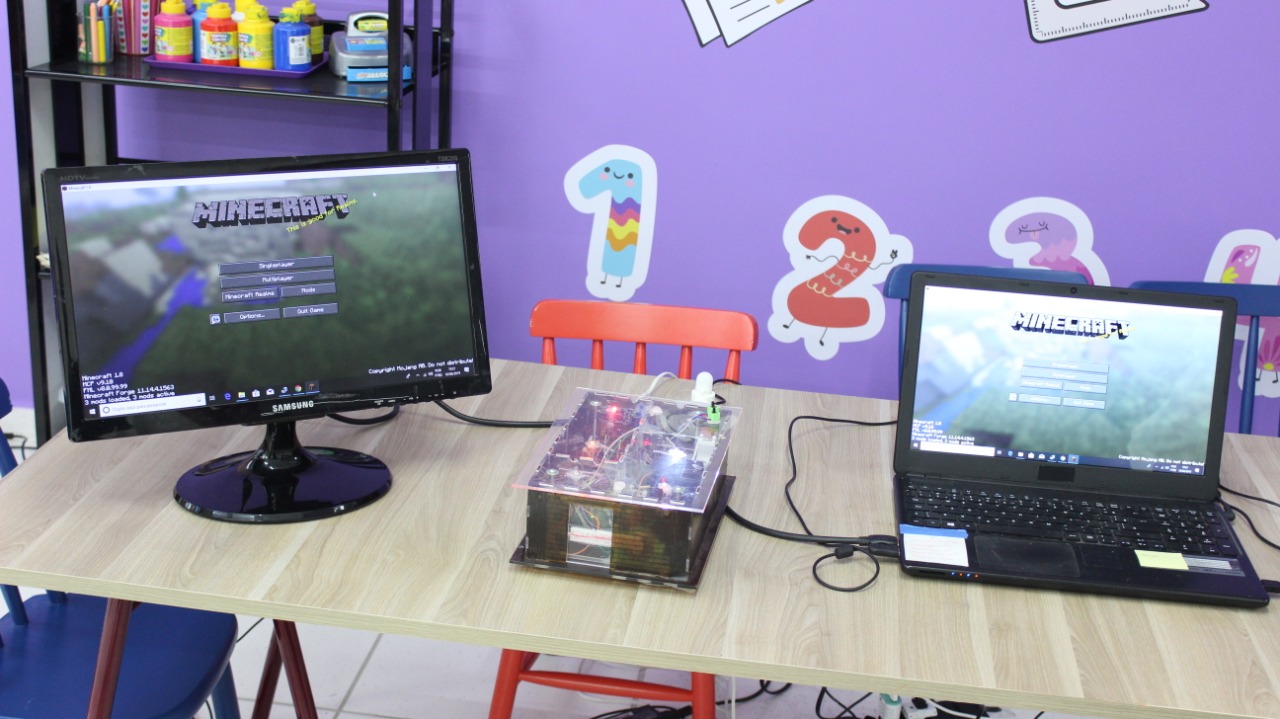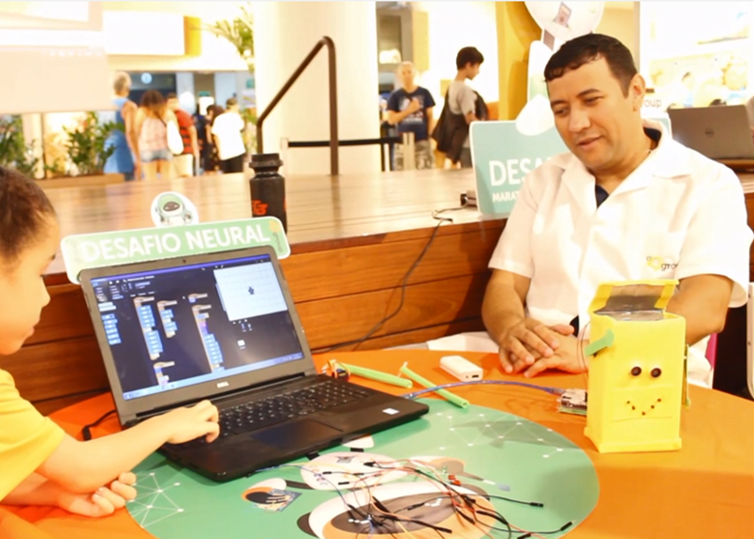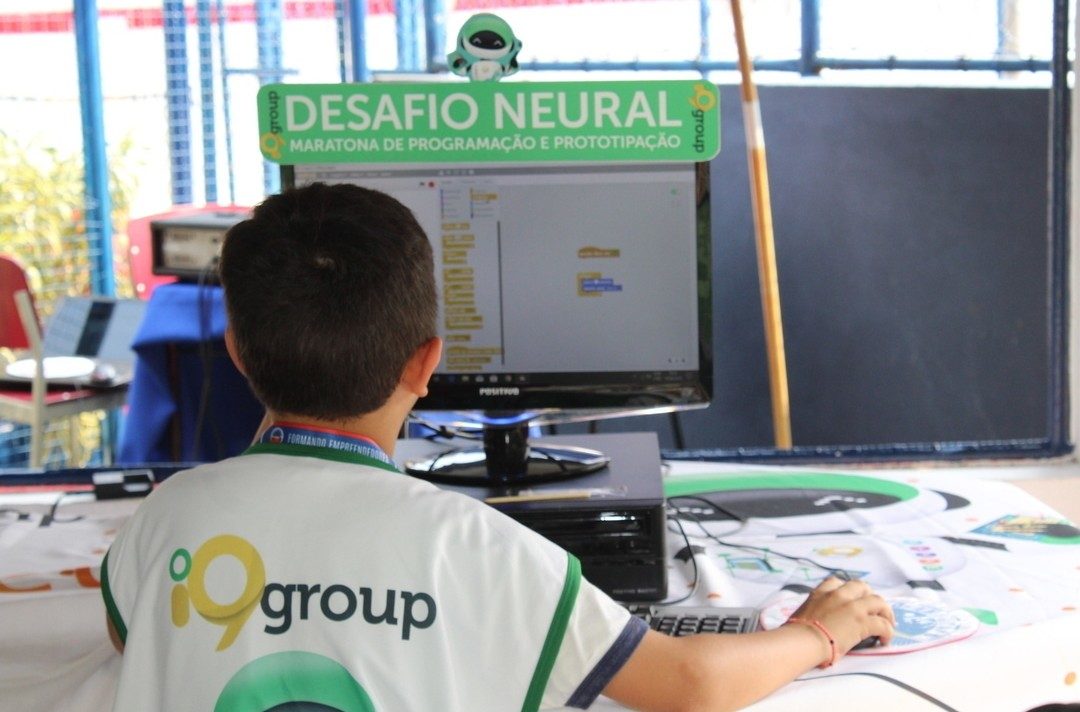TECHNOLOGICAL AND ENTREPREUNEURIAL INTELLIGENCE AS A SUBJECT
The modern world requires us to know how to create new technologies, to focus the high technological and entrepreneurial potential of students and to adapt teaching methods to the current reality. Combining theory and practice is also crucial. Learning by doing is vital to maximize content absorption by students.
The purpose of us in the i9group is to disseminate innovation, applied entrepreneurship, project management and the maker culture, under the STEAM methodology, in schools and colleges, enabling the progressive development of multiple intelligences and altruism in students.
We do this by implementing Technological & Entrepreneurial Intelligence as a subject in the program of education institutions.
AND HOW DO WE DEVELOP THE ENTREPRENEURIAL INTELLIGENCE AT THE I9GROUP?

Other than teaching concepts, as a way to promote content absorption in practice, we strongly encourage the annual implementation of innovative and entrepreneurial projects, whether technological or not – perhaps social and sustainable projects as well?.
Developed by the students themselves, supported by their teachers and using tools provided by the i9Project Way, such projects can be presented at in-school events and to outside audiences, such as science and entrepreneurship fairs. I9Project Way is a revolutionary, innovative, enabling and exclusive framework developed by i9group.
This ever-evolving platform is based on the needs of the modern world and international best practices, such as Design Thinking, Prince 2, PMI and 6Sigma, integrated and adapted to be used both by elementary and high school teachers and students, helping them manage their entrepreneurial and innovative projects.
The goal is not to train professionals, but rather to implement the project management culture in education institutions, developing the habit of thinking and acting in a logical-constructive-managerial manner in the many projects with each students and teachers deal with in their everyday, academic and professional lives.
Students learn and execute their projects in an integrated way, in teams consisting of up to 3 students with different and complementary profiles. This allows them to interact and learn from each other, progressively developing social-emotional skills (empathy, conflict and crisis management, altruism, among others), under the mediation of a mentor and the school’s psycho-pedagogical team.
The goal is not to train professionals, but rather to implement the project management culture in education institutions, developing the habit of thinking and acting in a logical-constructive-managerial manner in the many projects with each students and teachers deal with in their everyday, academic and professional lives.
Students learn and execute their projects in an integrated way, in teams consisting of up to 3 students with different and complementary profiles. This allows them to interact and learn from each other, progressively developing social-emotional skills (empathy, conflict and crisis management, altruism, among others), under the mediation of a mentor and the school’s psycho-pedagogical team.
In order to develop the students’ Technological Intelligence, through visual block visual programming tools and under the full stack approach (front-end and back-end), students, from early childhood education, learn progressively how to create

2D and 3D games, IoT (Internet of Things) experiments, develop automation and robotics projects, design mobile applications, among others.
Programming, robotics, automation and 3D prototyping have become essential in the school environment! They allow the construction of knowledge through the creation of new technologies, combining theory and practice. Part of the world to be understood and experienced by students is directly related to technologies, so their participation in prototyping, assembly, programming and device automation processes can be a broad and fertile ground for discovery . Education institutions should educate critical citizens, makers, who are aware of their role in society.
In order to develop their technological intelligence further, students can develop maker and STEAM projects, including simulations and assemblies of electronic and mechanical prototypes, in both virtual and real environments. The implementation of a Maker culture, combined with the STEAM Methodology, can become an important ally in maximizing content absorption by students, with a view to the practical application of theories studied in classroom, through the development of educational and technological experiments and projects.
It is important to emphasize that i9group trains all the teachers of the school and not only the mentors, which are those who will teach the Technological and Entrepreneurial classes. We want all teachers to be able to apply the i9Project Way method and the STEAM methodology, through integrated Maker projects focused on the application of the contents of their specific subjects, such as Mathematics, Languages, History, Science, among others. All of this is done with the support of i9group mentors and experts.
OUR CLASSES ARE 100% PRACTICAL!
Taught once a week, our classes use pre-assembled Arduino sets (robot, mini smart city, among others), which make it easy for students to learn how to code. Not to mention our optional maker sets, aimed at putting the Maker approach into practice, by developing electronic and mechanical experiments. They are taught by an in-house teacher, who is continuously trained to become a mentor of Technological and Entrepreneurial Intelligence and receives both regular and ad-hoc technological-pedagogical support from professionals of the i9group.
Students and mentors also have access to an online portal where they find videotapes, digital workbooks, experiments and quizzes about the lessons of the subject.
Finally, our partnership also extends to student attraction and retention processes. We can actively participate in enrollment events! In these events, dressed up entertainers interact with students and parents. IOT and robotics games and experiments, Maker workshops and trial lessons are also held to students and their families, as well as lectures on subjects such as Neural Education, Education

4.0 and the importance of the implementation of such subjects in the school program. We also offer on-demand thematic (e.g.: based on movies and cartoons) and personalized projects, such as interactive robots impersonating the school’s mascot. We can also participate in other events such as tournaments, scientific and entrepreneurship fairs throughout our partnership.

